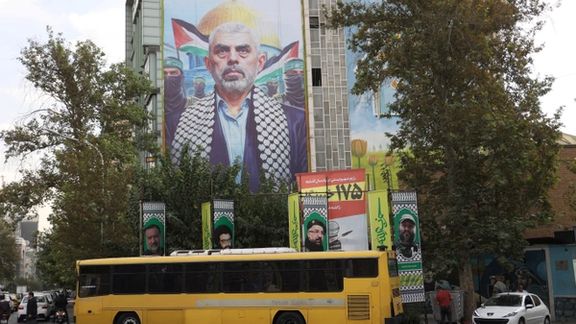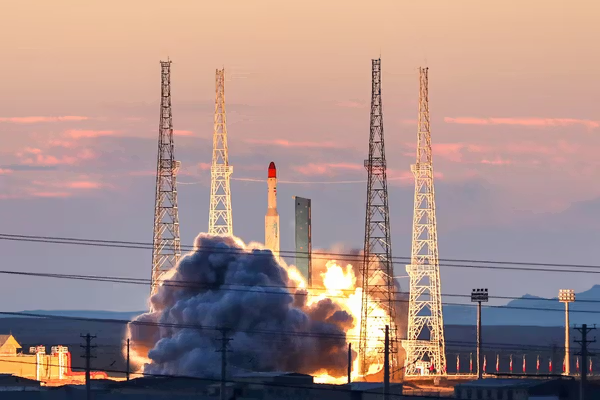The Islamic Republic's threats of igniting a regional war have caused significant turmoil in Iran's financial markets. On Saturday, the Tehran Stock Exchange index plunged by 24,000 points, falling to just above two million points. Meanwhile, the US dollar surged to near-record highs, and gold prices spiked, both serving as clear indicators of the escalating crisis.
Iran's economy has clearly felt the looming threat of war and responded swiftly. As the likelihood of an Israeli military strike increases, further spikes in the dollar rate and gold prices seem inevitable, heightening public anxiety about their financial survival.
The U.S. dollar has surged by nearly 10 percent since August, before Israel escalated its attacks on Hezbollah, prompting an Iranian missile barrage on October 1. While the IRGC missiles were ostensibly aimed at Israel, their true impact has been felt directly on Iran's economy, with ripple effects hitting domestic markets like daily economic bombs.
Iran’s economy hostage to foreign policy
In this situation, President Masoud Pezeshkian's government is similarly powerless to take effective action, as both war and sanctions are beyond its control. Economy Minister Abdolnasser Hemmati's calls for lifting sanctions to improve economic conditions are made with the full knowledge—shared by Hemmati himself—that this is impossible under current circumstances. Iran’s military and foreign policy decision are made by Supreme Leader Ali Khamenei.
Iran's economy has essentially become hostage to its foreign policy—a policy that is increasingly moving toward greater tension and conflict with the US and Israel. Not only is there no hope of lifting the sanctions, but new sanctions, such as those against Iran Air, have worsened the situation, leading to the complete suspension of Iran's flights to Europe.
Social discontent and public anger
Amid the ongoing economic crisis, protests from various sectors of society, including retirees and nurses, have grown, with people consistently voicing complaints about worsening economic conditions and their increasingly empty dinner tables. A central theme in these protests is the widespread anger toward the government’s neglect of domestic issues in favor of supporting groups like Hezbollah in Lebanon and Hamas. Many feel that, in the face of these crises and mounting economic pressures, the government has abandoned its own people, focusing on its regional proxies. This sentiment has further widened the gap between the public and the government, with anger and dissatisfaction clearly reflected in the protestors’ messages.
Failed attempt to assassinate Netanyahu intensifies tensions
Meanwhile, the IRGC and its proxy groups’ attempt to assassinate Israeli Prime Minister Benjamin Netanyahu has ended in failure. A drone attack on Netanyahu’s residence in Caesarea, between Haifa and Tel Aviv, was unsuccessful as neither he nor his wife were home at the time. This failure has intensified Israel’s anger, resulting in renewed threats against the Islamic Republic.
The incident raises a crucial question: Why have Israel and the US successfully targeted and assassinated numerous IRGC commanders and leaders of proxy groups, while the Islamic Republic and its proxies have not managed to eliminate even a single senior Israeli commander? The answer is the Islamic Republics technological inferiority.
In summary, as political and military tensions persist, Iran's economy is facing mounting pressure with no clear path to recovery. The Islamic Republic's foreign policy, focused on supporting regional proxy groups rather than national interests, has effectively held the economy and people's livelihoods hostage. Continuing with this foreign policy approach will not only fail to improve the situation but will further exacerbate the economic and social crisis.










